Filter by
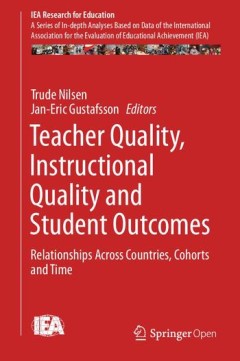
Teacher quality, instructional quality and student outcomes : relationships a…
This volume offers insights from modeling relations between teacher quality, instructional quality and student outcomes in mathematics across countries. The relations explored take the educational context, such as school climate, into account. The International Association for the Evaluation of Educational Achievement’s Trends in Mathematics and Science Study (TIMSS) is the only international…
- Edition
- -
- ISBN/ISSN
- 9783319412528
- Collation
- viii, 166p. : ill.
- Series Title
- -
- Call Number
- 371.26 TEA t
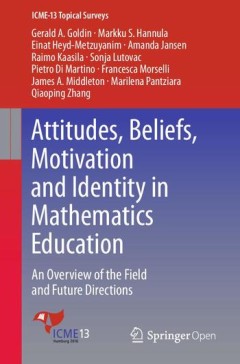
Attitudes, beliefs, motivation and identity in mathematics education : an ove…
This book records the state of the art in research on mathematics-related affect. It discusses the concepts and theories of mathematics-related affect along the lines of three dimensions. The first dimension identifies three broad categories of affect: motivation, emotions, and beliefs. The book contains one chapter on motivation, including discussions on how emotions and beliefs relate to moti…
- Edition
- -
- ISBN/ISSN
- 9783319328102
- Collation
- vii, 35p. : ill.
- Series Title
- -
- Call Number
- 510.71 GOL a
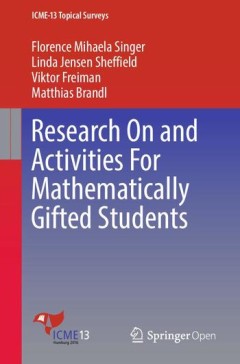
Research on and activities for mathematically gifted students
This Topical Survey offers a brief overview of the current state of research on and activities for mathematically gifted students around the world. This is of interest to a broad readership, including educational researchers, research mathematicians, mathematics teachers, teacher educators, curriculum designers, doctoral students, and other stakeholders. It first discusses research concerning t…
- Edition
- -
- ISBN/ISSN
- 9783319394503
- Collation
- -
- Series Title
- -
- Call Number
- 510.71 SIN r
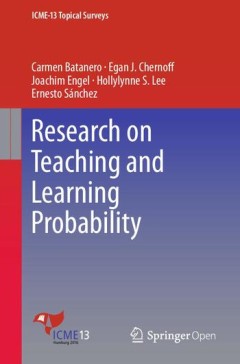
Research on teaching and learning probability
This book summarizes the vast amount of research related to teaching and learning probability that has been conducted for more than 50 years in a variety of disciplines. It begins with a synthesis of the most important probability interpretations throughout history: intuitive, classical, frequentist, subjective, logical propensity and axiomatic views. It discusses their possible applications, p…
- Edition
- -
- ISBN/ISSN
- 9783319316253
- Collation
- -
- Series Title
- -
- Call Number
- 519.2071 BAT r
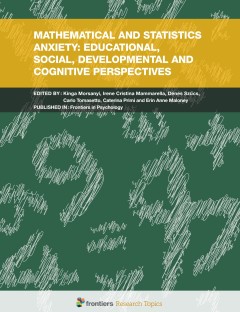
Mathematical and statistics anxiety : educational, social, developmental and …
Mathematical anxiety is a feeling of tension, apprehension or fear which arises when a person is faced with mathematical content. The negative consequences of mathematical anxiety are well-documented. Students with high levels of mathematical anxiety might underperform in important test situations, they tend to hold negative attitudes towards mathematics, and they are likely to opt out of elect…
- Edition
- -
- ISBN/ISSN
- 9782889450763
- Collation
- -
- Series Title
- -
- Call Number
- 519.5 MAT m
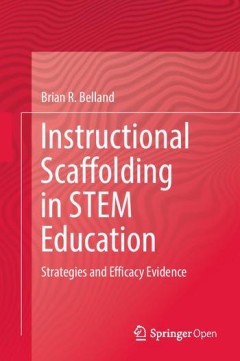
Instructional scaffolding in STEM education : strategies and efficacy evidence
This book uses meta-analysis to synthesize research on scaffolding and scaffolding-related interventions in STEM (science, technology, engineering, and mathematics) education. Specifically, the volume examines the extent to which study quality, assessment type, and scaffolding characteristics (strategy, intended outcome, fading schedule, scaffolding intervention, and paired intervention) influe…
- Edition
- -
- ISBN/ISSN
- 9783319025650
- Collation
- xi, 144p. : ill.
- Series Title
- -
- Call Number
- 510.71 BEL i
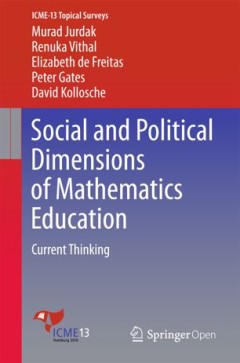
Social and political dimension of mathematics education: current thinking
This book examines the current thinking on five critical social and political areas in mathematics education. It focuses on material conditions in teaching and learning, and details features of social life and their influence on mathematics teaching, learning and achievement. Following an introduction, the first section addresses equitable access and participation in quality mathematics educati…
- Edition
- -
- ISBN/ISSN
- 9783319296555
- Collation
- vii, 37p.:
- Series Title
- -
- Call Number
- 370
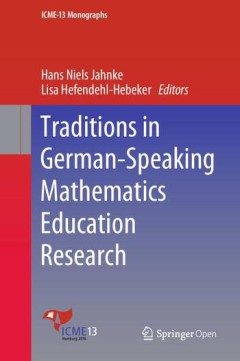
Traditions in German-speaking mathematics education research
This open access book shares revealing insights into the development of mathematics education research in Germany from 1976 (ICME 3 in Karlsruhe) to 2016 (ICME 13 in Hamburg). How did mathematics education research evolve in the course of these four decades? Which ideas and people were most influential, and how did German research interact with the international community? These questions are a…
- Edition
- -
- ISBN/ISSN
- 9783030110697
- Collation
- viii, 278p. : ill.
- Series Title
- -
- Call Number
- 370 JAH t
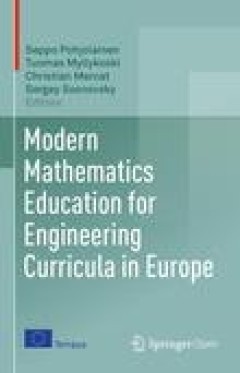
Modern mathematics education for engineering curricula in Europe : A comparat…
- Edition
- -
- ISBN/ISSN
- 9783319714165
- Collation
- VI, 182 p.
- Series Title
- -
- Call Number
- 370 MOD m
- Edition
- -
- ISBN/ISSN
- 9783319714165
- Collation
- VI, 182 p.
- Series Title
- -
- Call Number
- 370 MOD m
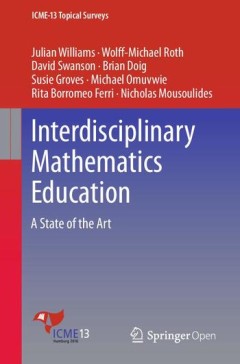
Interdisciplinary mathematics education : a state of the art
This book provides an essential introduction to the state-of the-art in interdisciplinary Mathematics Education. First, it begins with an outline of the field’s relevant historical, conceptual and theoretical backgrounds, what “discipline” means and how inter-, trans-, and meta-disciplinary activities can be understood. Relevant theoretical perspectives from Marx, Foucault and Vygotsky ar…
- Edition
- -
- ISBN/ISSN
- 9783319422671
- Collation
- vii, 36p. ill.
- Series Title
- -
- Call Number
- 510.71 WIL i
 Computer Science, Information & General Works
Computer Science, Information & General Works  Philosophy & Psychology
Philosophy & Psychology  Religion
Religion  Social Sciences
Social Sciences  Language
Language  Pure Science
Pure Science  Applied Sciences
Applied Sciences  Art & Recreation
Art & Recreation  Literature
Literature  History & Geography
History & Geography